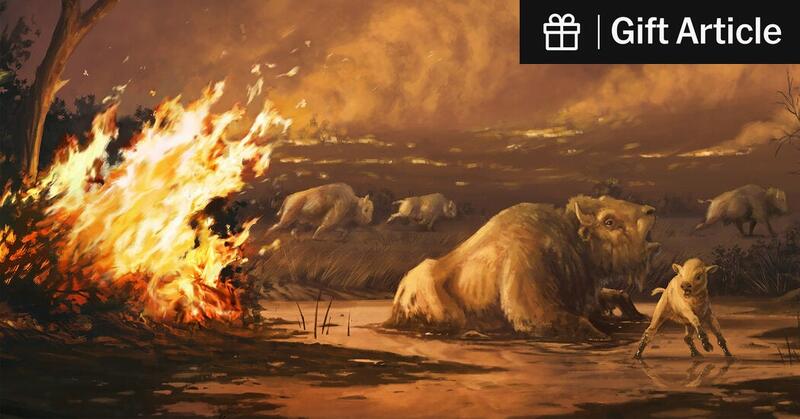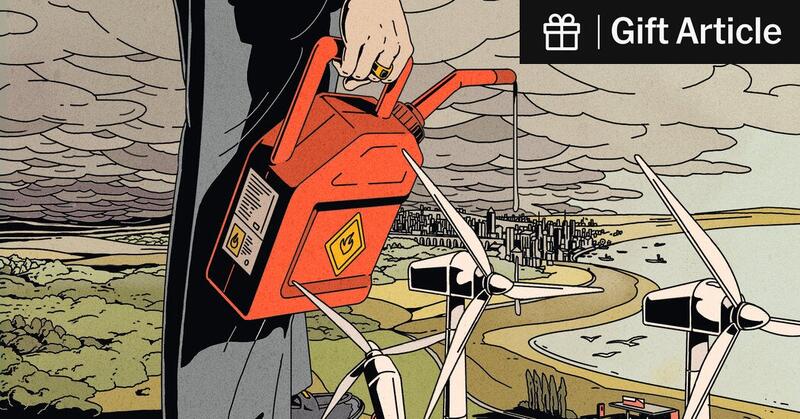|
This is a very interesting finding by another Dr. Dunn and her colleague. It sheds critical light on a longstanding debate about to what extent ancient human presence in North America was benign. A major talking point of constructivist, anti-wilderness thinkers is that large-scale human-induced fire has long been a part of North American landscapes and so "wilderness" (they like to scare quote it) is an unjust myth. There is a grain of truth to this and it is undeniable that the indigenous people of North America (and elsewhere) have been subjected to many injustices. Nevertheless, the basic anti-wilderness position and argument, which includes those relying on human-induced fires is quite wrong. First, because for countless millions of years prior to the quite recent (geologically and evolutionarily speaking) arrival of humans on this continent, wilderness was the basic condition here in a Pleistocene bonanza of large megafauna. And second, as this study reveals, because humans were likely integral to the widespread extinction of many species and thus, while it IS the case that human-induced fire was widespread (though by no means ubiquitous - another fallacy in the constructivist argument) for a decent length of time (let's say 14,000 years more or less), it was destructive in many ways. Thus it does not follow that it is a good thing and SHOULD have been a part of this landscape. Regardless, it is a necessary work in progress to do right by the indigenous people of this continent even if their ancestors are implicated in ecological destruction (as no human society is likely immune from). And it is also the case that since these early extinctions, the cultural development of North American indigenous peoples, including land management practices, spiritual connections, and ethical systems, has become something admirable in many ways due to learning from past mistakes, so this revelation doesn't take away from this. Just as we can appreciate the land management practices, spiritual connections, and ethical systems encapsulated in the ethical and practical innovation of wilderness in the contemporary context.
0 Comments
Fossil fuel companies (and their corrupt government operatives) aren't going to stop themselves - we have to force them. Here's an outlet to begin this world-historically important work: a Global Climate Strike is planned by Fridays for Future on September 15, and a March to End Fossil Fuels will be held in New York and around the world on September 17 (LINK HERE).
“Anything else you’re interested in is not going to happen if you can’t breathe the air and drink the water. Don’t sit this one out. Do something. You are by accident of fate alive at an absolutely critical moment in the history of the planet.” --Carl Sagan |
Chris Dunn, PhD
Researcher, writer, explorer*, photographer, thinker. Wrestling with nature, culture, technology. Archives
July 2024
Categories
All
*When I use the term "exploration", I mean it in a personal sense (discovery for myself, or at a unique moment in time [everywhere after all--even crowded cities--endlessly await rediscovery--by new eyes and in new moments]), not in an absolute sense. With few exceptions (notably Antarctica), almost everywhere on earth has had other people around for a long time (though to varying degrees - high mountain tops or places like the interior of the Greenland Ice Sheet for instance were far less visited and populated, and undoubtedly at least some pockets of the earth were never visited or populated). It is an enlightening experience though when on an isolated ridge in what feels like the middle of nowhere to wonder if anyone has set foot there but never knowing for sure. What is significant is that the landscape itself is left in such a condition that it isn't evident. Some places ought to be kept that way.
|


 RSS Feed
RSS Feed